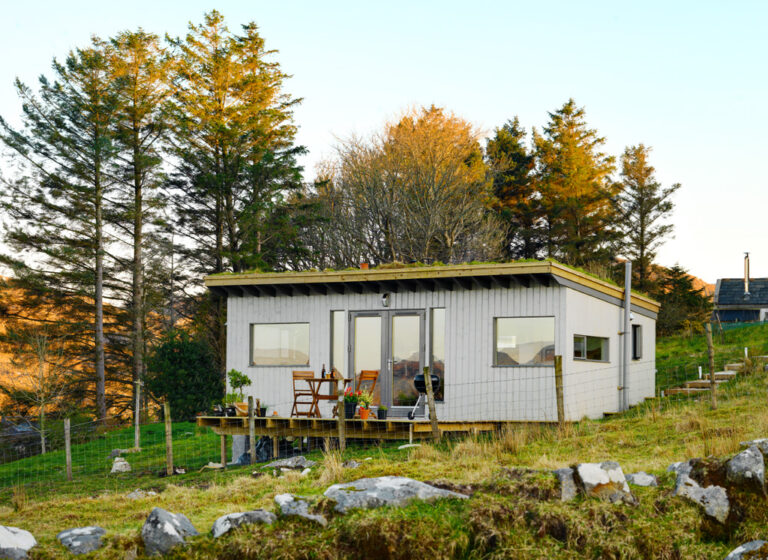As summer approaches, Airbnb has revealed that tourism to Ireland from North America is growing more than ever, with more visitors from the US than from the UK or any other country. Regional destinations in particular will benefit from transatlantic tourists, with Ireland on track to have its most dispersed traveller year to date in 2023.
Nearly 5,000 towns, villages, parishes and cities across Ireland are already accepting bookings via Airbnb for summer 2024. Last year, bookings outside busy city centres increased by 8% and more than a third of guests visiting Ireland said they chose to stay with Airbnb because they wanted a local experience2.
Rural town hosts are benefiting from a growing trend of American tourists looking to venture outside of big cities and, in some cases, trace their Irish roots. Connemara saw a significant increase in the number of North American guests it welcomed in 2023, up 18% from the previous year. As American tourists move away from major cities, Airbnb has seen an increase in North American visitors, with Killarney and Kilkenny becoming Ireland’s second most popular tourist destination after Connemara.
Tourism across Ireland is set to face major changes next year as the government works to introduce new rules on short-term rentals. Airbnb has long advocated for regulation, particularly a national registration scheme, but is concerned that the new planning guidelines will have a negative impact on local tourism. This in turn will have a negative impact on local businesses and families who rely on vital tourism spend. Airbnb guests have a significant impact on the Irish economy, contributing over €500 million in 2022 alone and supporting around 5,000 jobs across Ireland. Ireland now has a unique opportunity to introduce clear, effective planning guidelines that support the benefits of our vibrant local tourism industry, rather than putting it at risk.
In Scotland, Airbnb recently highlighted how aggressive new regulations on short-term rentals are damaging the country’s tourism industry and limiting economic opportunity for local families. Low approval rates for short-term rentals are driving up hotel prices, with hotel prices in Edinburgh increasing by 9% in 2024 alone.
Scottish travellers in particular are increasingly turning to the north of England, with cities like Liverpool and Newcastle seeing a surge in searches suggesting they are becoming attractive alternative destinations. This echoes the situation in New York City, which is experiencing similar effects and a shift to places with less restricted activity.
Airbnb encourages the Irish government to prioritise work on regulations in consultation with hosts and stakeholders to ensure implementation protects local tourism and families. In November 2023, we wrote to the Irish Parliament’s Joint Tourism Committee, urging them for clear planning guidelines that do not create unnecessary barriers for people with limited resources. We highlighted the importance of proportionality rules to ensure homeowners who rent out units such as grandparent apartments or converted barns can continue to do so without needing planning permission. Additionally, we urged the need for rules that consider people, like our host Brian, who also use their personal holiday homes as short-term rentals and do not intend to put them on the long-term rental market.
“Renting out our Mountain View home to travelling groups on Airbnb has helped us pay our rent and our children’s school fees. We try to introduce our guests to the same little shops that we enjoyed when we came here in the winter. We want to support tourists and the local economy by showing our guests the best ways to eat, drink and enjoy Donegal like a local. We also had the great experience of helping an American guest trace his Irish family.
“We don’t know if we’ll be able to continue running the place in the future as it’s unclear what planning permission we’ll need or whether we’ll be able to rent it out to visitors if the rent gets higher and higher.”
Brian Gilfedder, Airbnb Superhost in Donegal
“We have long supported the introduction of modern rules to bring transparency to short-term rental activity in Ireland and help local authorities enforce the rules while protecting people who home-share on a daily basis. Now the Government must also introduce effective, simple planning guidelines that give hosts reassurance and protect the tourism economies that many rural communities rely on. Airbnb has worked with governments around the world to balance the benefits of short-term rentals with local housing concerns, and we look forward to working with the Government on guidelines that protect rural tourism.”
Derek Nolan, Head of Public Policy, Airbnb Ireland
The majority of Airbnb hosts in Ireland are families who share their home just three nights a month. The average Irish host earns more than €5,600 a year4, roughly two months’ extra income for the average Irish household. More than half of Irish hosts say they host to cover the rising cost of living, and over a third say the extra income helps them make ends meet as energy prices and mortgage repayments rise5.
Tourism is vital to families and communities in almost every city, town and village in Ireland and we believe that the new regulations and balanced planning guidelines, if implemented well, will allow us to continue to offer our unique attractions to domestic and international visitors, protect jobs and ensure Ireland continues to rely on and benefit from tourism.

